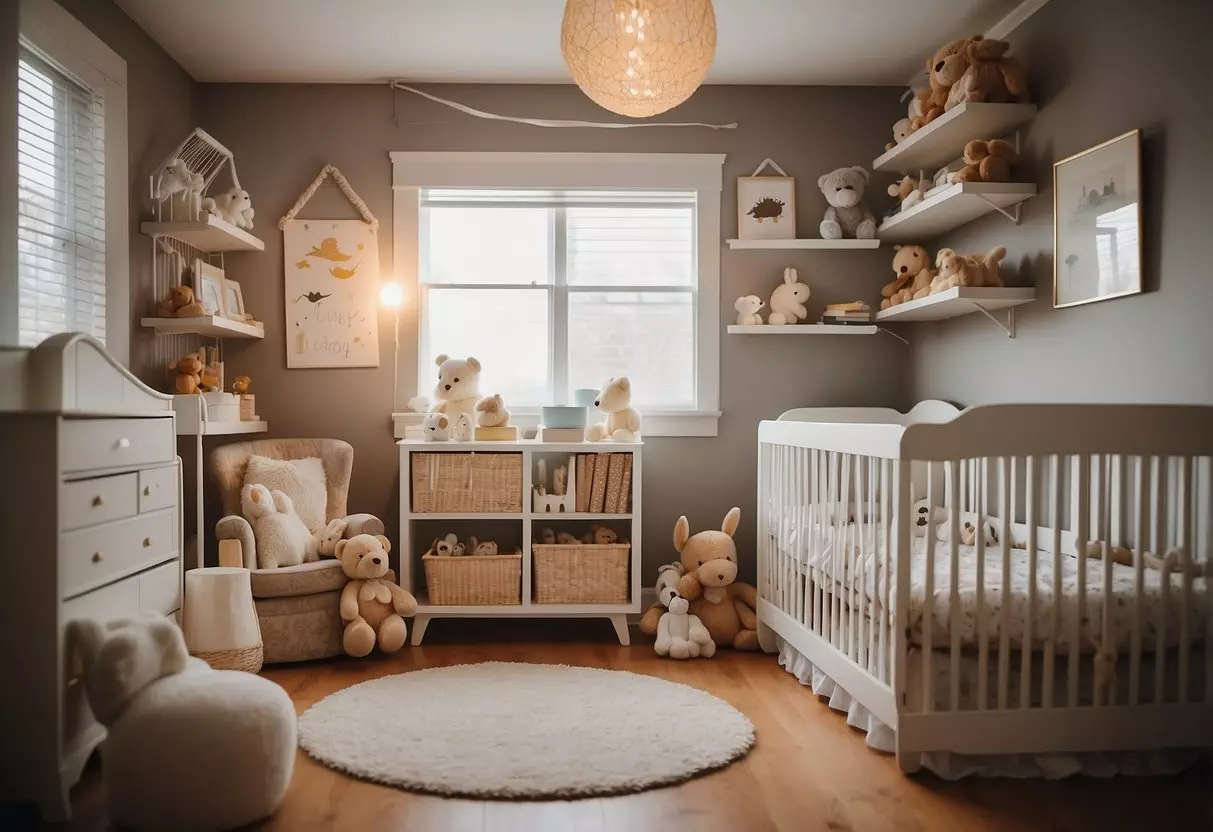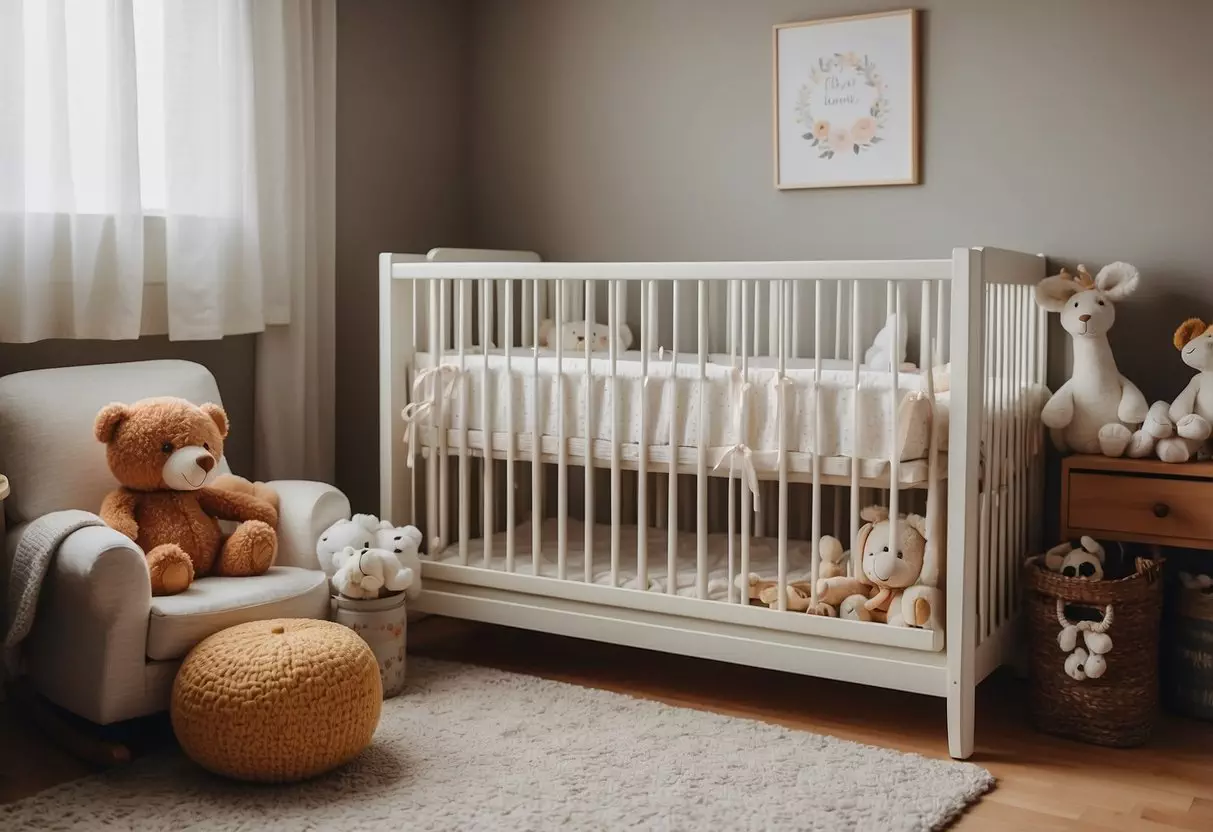Can You Leave a 3 Month Old Baby with Grandparents? Tips and Advice
Wondering if you can leave your 3-month-old baby with grandparents for a night? This is a common question many new parents face. At 3 months old, it’s generally advised to wait a bit longer before having your baby stay overnight with grandparents. During the first three months, babies are still developing a strong bond with their parents and may not yet be ready for an overnight stay away from them.

That said, leaving your baby with grandparents for a few hours during the day can be a great way to ease into longer separations. It’s essential to ensure that both you and the grandparents feel comfortable with the arrangement. Leaving your baby for small periods can also help you gradually trust that your child is in good hands.
If you feel your baby is ready, always communicate clearly with the grandparents about feeding schedules, sleep routines, and any other important details. Everyone needs to be on the same page to make it a positive experience for your little one.
Table of Contents
Considering Your Baby’s Needs and Well-Being

When deciding if you can leave your 3-month-old baby with grandparents, it’s important to consider their developmental stage and daily routines. Pay attention to how your baby reacts to separation and how their feeding and sleeping patterns are managed.
Understanding Baby Development and Separation Anxiety
At 3 months old, babies are still developing their sense of security and attachment. They might not have strong separation anxiety yet, which typically starts around 6 to 7 months. However, it’s crucial to observe how your baby responds to different caregivers.
Babies at this age are gaining control over their heads and hands, as well as starting to smile and coo, which shows they are building social connections. Make sure your baby’s grandparents are familiar with these developmental milestones and know how to engage with them properly.
Breastfeeding, Bottle Feeding, and Sleeping Patterns
Feeding is a major part of your baby’s routine. Whether you’re breastfeeding or using a bottle, it’s important that your baby receives enough nutrition. If you’re breastfeeding, you might need to provide breastmilk in bottles. If using formula, ensure the grandparents know the proper preparation and feeding techniques.
Your baby’s sleep schedule might include 3 to 5 daytime naps lasting from 30 minutes to 2 hours. Consistency is key, so it’s helpful to establish a regular schedule. Inform the grandparents about the typical sleep patterns and the bedtime routine to help your baby feel comfortable and secure.
Meeting your baby’s feeding and sleeping needs is essential for their comfort and well-being while they are in the care of their grandparents.
Preparing for Separation

Preparing to leave your 3-month-old baby with grandparents involves clear communication, gathering essential baby products, and creating a comfortable environment for the baby.
Communicating With Grandparents
Start by discussing expectations with the grandparents. Talk about your baby’s daily routine, including feeding, napping, and playtime. Share details about comfort items or specific needs the baby has.
Create a list of emergency contacts, including your baby’s doctor. Make sure grandparents know how to reach you at all times. Setting clear communication lines helps ensure the baby feels secure and you stay informed.
Regular check-ins can help ease your mind. Plan to call or video chat so that you can see how your baby is doing and address any questions or concerns that arise.
Essential Baby Products and Caregiver Instructions
Gather all necessary baby products before leaving your baby for the first time. Pack enough diapers, wipes, bottles, formula, and baby food if needed. Ensure there are extra clothes, blankets, and favorite toys to keep the baby comfortable.
Write detailed instructions for the grandparents. Include feeding schedules, preferred methods for soothing your baby, and any medications. A written guide helps cover all bases and offers reassurance.
Consider providing tools like a baby monitor or a crib if the location doesn’t have them. Safety is key, so ensure everything needed is available and easy for the grandparents to use.
Creating a Comfortable Environment
Make sure the environment at the grandparents’ home is safe and comfortable for the baby. Set up a dedicated sleeping area with a crib or bassinet. Ensure the room is quiet and kept at a comfortable temperature.
Bring familiar items from home, such as the baby’s favorite blanket or stuffed animal. These items can help the baby feel secure and reduce anxiety.
If possible, spend some time at the grandparents’ home with the baby before the actual separation. This helps acclimate the baby to the new surroundings and builds a sense of familiarity with the caregiver.
Ensuring the home is baby-proofed and free from hazards is also crucial. Corner protectors, outlet covers, and keeping small objects out of reach can make a significant difference in creating a safe space.
Managing Emotions and Expectations

When leaving your 3-month-old with grandparents, it’s important to consider your mental health and the baby’s emotional needs.
Parents’ Mental Health and Well-Being
Feeling anxious about leaving your baby with grandparents is normal. Many parents experience a mix of emotions, including worry and guilt. Trust plays a big role in easing these feelings. Make sure you feel confident in your choice and that the grandparents are willing and able to care for your baby.
Talking openly with the grandparents can also help. Discuss schedules, feeding, and any special needs your baby might have. This open communication will help you feel more at ease and ensure that everyone is on the same page.
Consider starting with short visits. Gradually extending the time can make the transition smoother for both you and your baby. This approach can help you get used to being apart without feeling overwhelmed.
Recognizing and Addressing Baby’s Emotional Needs
At three months, babies are starting to recognize familiar faces and voices. They may show signs of distress when separated from you. It’s important to help your baby feel secure and loved even when you’re not around.
Create a routine that grandparents can follow. Consistency in feeding, naps, and playtime can make the baby feel more comfortable. Bringing along familiar items like a favorite blanket or toy can also help soothe your baby.
Grandparents should be mindful of the baby’s cues. If the baby cries, they should try to comfort them by holding, singing, or talking gently. According to the Mayo Clinic, babies respond well to familiar sounds and faces, so having grandparents spend time with them regularly can build a strong bond.
